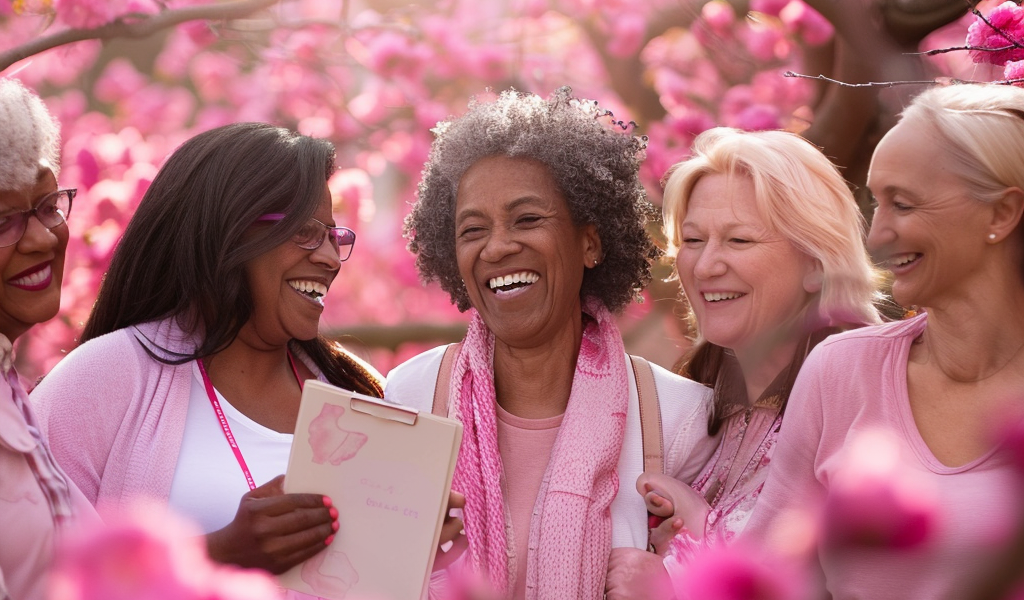Innovative Developments in Breast Cancer Vaccine Trials
As the fight against breast cancer continues, researchers are making significant strides toward the development of a safe and effective vaccine. Kristen Dahlgren, the founder of the non-profit organization The Cancer Vaccine Coalition, recently discussed the promising advancements in breast cancer vaccine trials during an appearance on the TODAY show, alongside NBC News medical contributor Dr. Natalie Azar.
The Current Landscape of Breast Cancer Vaccines
Breast cancer remains one of the most prevalent forms of cancer among women, prompting urgent research into potential vaccines. The ongoing trials in the United States aim to explore how a vaccine could help prevent breast cancer or aid in the treatment of those already diagnosed. With the increasing incidence of the disease, especially among younger women, the development of a vaccine could represent a transformative breakthrough in cancer prevention and treatment.
Who Could Benefit from the Vaccine?
According to Dahlgren, the vaccine trials are designed to identify specific populations that may benefit most from the vaccine. This includes individuals with a family history of breast cancer or those who carry genetic mutations that increase their risk. The goal is to tailor the vaccine’s application to maximize its effectiveness and provide a proactive approach to breast cancer management.
Insights from Survivors and Experts
The TODAY show segment highlighted the voices of breast cancer survivors who shared their experiences and the importance of advocacy in their journeys. One survivor emphasized how self-advocacy played a crucial role in her diagnosis and treatment, underscoring the need for women to be proactive about their health.
In addition, medical experts discussed the evolution of breast cancer treatments over the years, noting how advancements in technology and research have significantly improved outcomes for patients. The integration of personalized medicine and targeted therapies has become a cornerstone of modern breast cancer treatment.
Awareness Campaigns and Community Support
In conjunction with the vaccine trials, various awareness campaigns are being launched to educate the public about breast cancer. Initiatives like Light Up MBC aim to raise awareness about metastatic breast cancer, emphasizing the importance of early detection and ongoing research funding.
Community support also plays a vital role in the fight against breast cancer. Organizations are offering resources and funding for research, while also providing emotional support for those affected by the disease. Gifts that give back to breast cancer causes are becoming increasingly popular, allowing consumers to contribute to research while purchasing products.
Screening and Risk Reduction
Discussions around breast cancer also focus on the critical need for improved screening methods. Experts advocate for better access to screenings, which can lead to earlier detection and more effective treatment options. Furthermore, research is ongoing into lifestyle changes and preventative measures that can reduce the risk of developing breast cancer.
Personal Stories of Resilience
Several segments featured personal stories from women who have navigated their breast cancer journeys. These narratives highlight the emotional and physical challenges faced by patients, as well as the resilience and strength that emerge from their experiences. From rediscovering passions post-diagnosis to celebrating milestones like being declared cancer-free, these stories serve as powerful reminders of the human spirit’s capacity to overcome adversity.
Future Directions in Breast Cancer Research
As researchers continue to explore innovative strategies for breast cancer prevention and treatment, the potential for a breast cancer vaccine remains a beacon of hope for many. Ongoing trials aim to not only enhance the understanding of breast cancer but also to pave the way for groundbreaking therapies that could change the landscape of cancer treatment.
The collaboration between researchers, healthcare providers, and patients is essential in this endeavor, fostering an environment where new ideas can flourish and lead to significant advancements in the fight against breast cancer.





